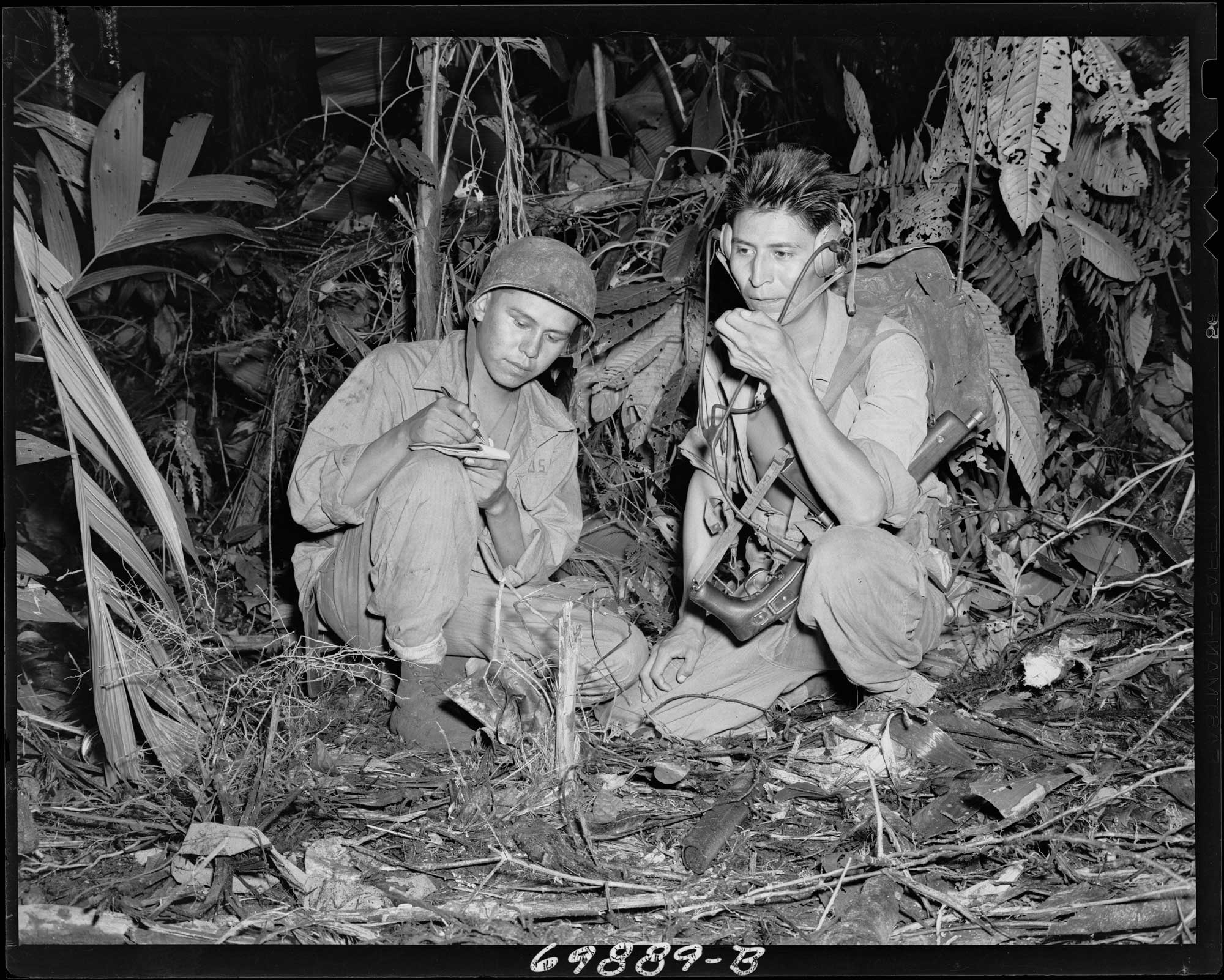 VIEW LARGER Photograph of Navajo Indian Code Talkers Henry Bake and George Kirk, 1943.
VIEW LARGER Photograph of Navajo Indian Code Talkers Henry Bake and George Kirk, 1943. In 2019, four Navajo Code Talkers died. That leaves only five who live to tell the story of their historic legacy.
In 1942, 29 Navajos developed an unbreakable code that led to the end of World War II. More than 400 Navajos then executed the code.
The four men who died in 2019 were known for more than their service. Fleming Begay went on to become a guidance counselor and businessman who helped start Navajo Community College.
New Mexico state Sen. John Pinto was the longest-serving member of the Senate.
William Tulley Brown and Alfred K. Newman received many awards for their service during World War II.
Former Navajo Code Talker Peter MacDonald said the Navajo code was responsible for saving hundreds of thousands of lives.
The code was declassified in 1968. But it wasn't until 2000 that Washington honored the men with Congressional gold and silver medals.


By submitting your comments, you hereby give AZPM the right to post your comments and potentially use them in any other form of media operated by this institution.